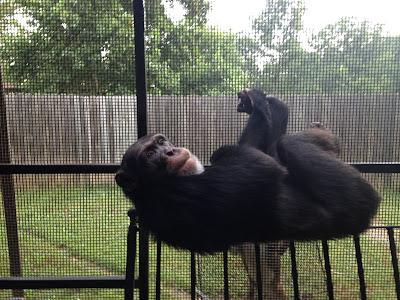 |
| Who is your master, little bee? |
The truth is that there is still a lot that I don't know about bees, even though there seems to be no shortage of them on my property. Some of the bees are honey bees, while many belong to other varieties. But even in the case of the honey bees, I don't know where they live or whether they are free or "owned". And I certainly don't know how they reproduce or manage to survive our harsh winters.
The idea of owning bees may seem kind of silly. They are insects. They fly around freely. There are no collars on them or identification tags. How could you possibly complain that a bee is trespassing on your property and ask for restitution from the owner? By the same token, how would you go about filing a claim if you thought a bee belonging to you was stolen? Do the bees know who owns them? Oxen and asses do know who owns them, according to Biblical scripture (Isaiah 1:3). But bees?
However, not only are there beekeepers and bee owners, there are also bee breeders and bee sellers. If for instance, 30% of a beekeeper's colony dies of the dreaded "colony collapse disorder", that does not mean that next season that beekeeper will have 30% fewer bees to begin with. Not at all. He can simply order new bees -- in a kit -- from his friendly local bee breeder, and next year he will have exactly the number of bees that he wants to have. No more, no fewer.
I did not think of this myself. I read it here:
http://www.washingtonpost.com/news/wonkblog/wp/2015/07/23/call-off-the-bee-pocalypse-u-s-honeybee-colonies-hit-a-20-year-high/
I actually did know about the bee kits, because a friend of mine orders them most years. Although recently she skipped a year, and that must have greatly reduced the bee population in her neighborhood.
If you read the most popular news items about bees, they never mention this. They don't talk about bee breeders, and how all of us are counting on them to supply beekeepers with extra bees, to make up for the bees they lose to the vagaries of nature.
They do talk about how we need bees as pollinators, so that even if we don't like honey and could not care less if there were no honey left to eat, we should care if we like peaches and nectarines and apples and pears. No bees, no fruit, they tell us. The earth will be a desolate place, and the only thing left to eat will be hamburgers and bean burritos.
Here's what they don't tell us: if we keep importing honey from abroad, our local beekeepers will stop ordering pre-packaged bees from the bee breeders, and then the local fruit growers will have to find some other way to pollinate. This will not result in no fruit. It may, however, result in much more expensive fruit. Because all the bees will be overseas, working for the local beekeepers who are making a living from selling honey to us.
Everything in life is interconnected, including ecology and economy. An animal has no chance of survival in this overpopulated world unless humans cultivate it, breed it and keep its kind going. That's why if you want bees, you go to bee breeders. No breeders, no bees.
The same thing is true for chimpanzees. If you want there to be chimpanzees on earth in the future, then you have to be nice to chimp owners and chimp breeders. Chimp breeders make a living from chimp owners. Do away with ownership of chimpanzees, and there will be no breeders. No breeders means no chimps. There is no other way for them to have any chance at all to survive as a species. So if you are a real conservationist, you have to fight for the right to own chimpanzees.







I never bought into the under population of bees due to what I witnessed myself with my house being swarmed by bees in 2013. I know they were cutting down a lot of orange trees across the street, which might have explained how thousands of bees got trapped in our attic. The bees made their way down to my bathroom light, and finally I had to say something because there were several hundred bees buzzing around in it. The bee exterminator kept joking with us about how we wanted to come up on the roof why he took for of the bee infestation. The buzzing sound was horrible. Also, I am allergic if I get stung by bees, so I was slightly apprehensive during the whole thing.
ReplyDeleteHi, Julia, bees certainly do not belong in the house, and a whole swarm if it goes after someone can be deadly, so I can understand your apprehension.
DeleteIt's good to know there is no shortage of bees, though. It's just that it's hard to find local honey in the grocery store. But that has more to do with the food market than anything else.
There should be more local honey. I feel like the push for certain food standards were at the expense of local growers and farmers. For instance, may farmers have organic produce, but they cannot afford to get USDA certification.
DeleteYes, I agree, Julia.
Delete